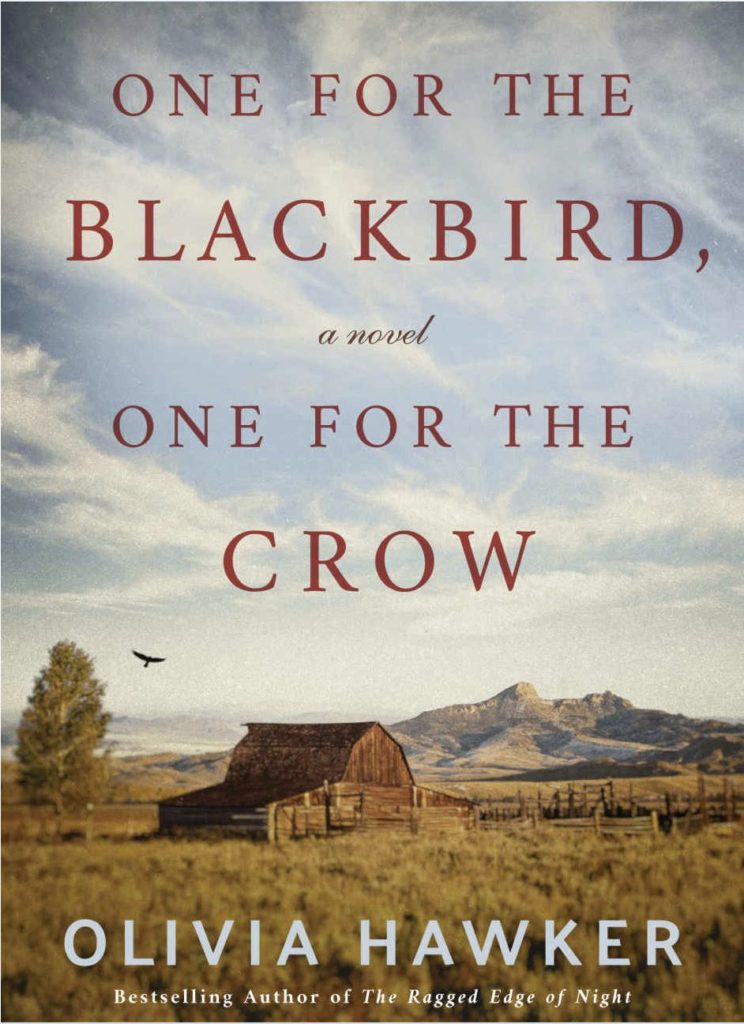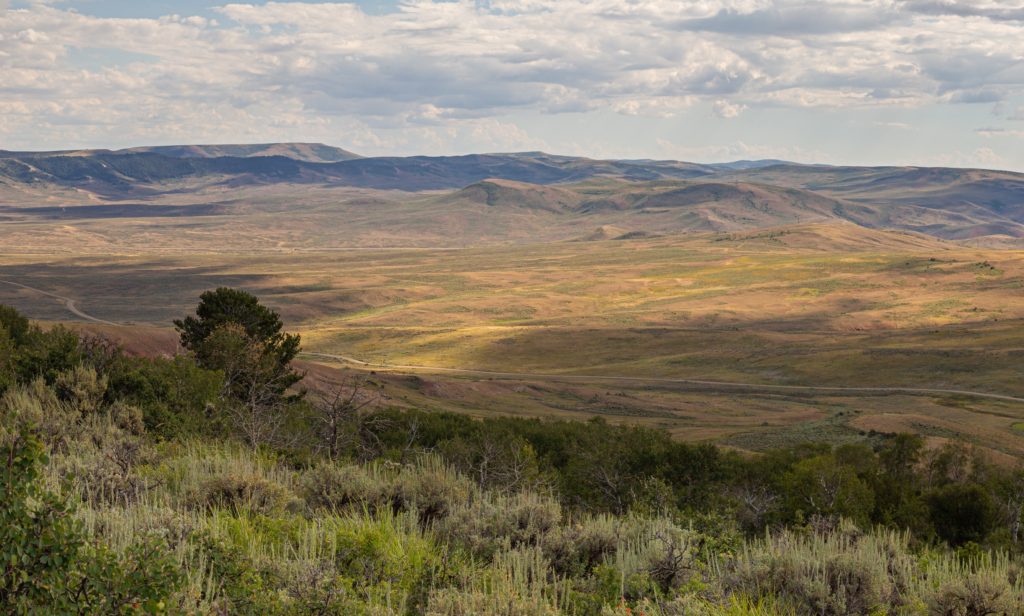One for the Blackbird, One for the Crow (Review)
by Olivia Hawker

Five stars for the beautiful prose, two for the lagging plot…

This book was published by Lake Union Publishing, an arm of Amazon. Olivia Hawker has an interest in genealogy and historical fiction. Her first book, The Ragged Edge of Night, and this one were both drawn from true stories in her family tree.
Verdict: It depends. If you love vivid prose, endless description and narrative, internal reflection, and more of a literary plot, then this is the book for you. If you want a fast-moving adventure (or even a moving adventure) set in the Wyoming plains with lots of “show-me” and crisp dialogue, this is NOT your book.
Recommend (barely) with the caveat above. If you love excellent prose and don’t mind repetition and a very slow plot, then you’ll probably like this book. Otherwise, skip it.
What’s it about? Two families living out on the plains of Wyoming in 1876 (I’m already interested), far from civilization. Cora, one of the wives, sneaks off (routinely) with the other woman’s husband, a man named Substance (yes, Substance). Cora and Substance are caught by Cora’s husband, and he shoots and kills Substance. Cora’s husband turns himself in and is jailed for two years, 20 miles away. Cora (the cheating wife), her daughter Beulah, and her two sons, must survive the winter next door to Nettie Mae, the wife of Substance (note Cora is responsible for Nettie Mae’s husband being shot). Nettie Mae has one son, Clyde, an older teenager, who is left to accomplish the work of two farms with the two fathers gone. The book is about what should be a rather complex relationship between the two families, especially the two women. And there is the burgeoning attraction of Beulah and Clyde to each other.
Great set-up for what could be an interesting story.

The story (the plot and characters): The story starts with a structural mistake (IMO). It alternates through four POVs, one per chapter. There’s Beulah, a pubescent, carefree and wandering soul, daughter of Cora (the cheating wife); Cora, a timid weak woman; Nettie Mae, a stoic survivor of a somewhat abusive husband (the slain one); and Clyde, teenage son of Nettie Mae. IMO, this alternation in POVs every chapter creates a significant amount of repetition and drags the plot down with it. Mid-to-late book, I began to wonder: (1) if anything of interest was going to occur, and (2) if the story would ever end.
The questions to be answered are: Will these two families survive the winter without the fathers? Will Nettie Mae and Cora accept each other or even become friends? What does the future hold for Beulah and Clyde? For Cora’s family? For Nettie Mae and Clyde? Somewhere in all the endless prose, internal dialogue, drawn-out narratives, and such is the answer to these questions. Problem is the pace at which the answers come. For most of the book, the four characters seemed to be loafing around talking about this or that in their head and accomplishing little.
What’s good about the book? The writing is VERY good. This author has a talent with words that is unmatched in most other books I have read. If you love literary fiction, this book is lyrical and written with elegance. That’s where it ends for me. Literary fiction is supposed to provide in-depth characterizations too. The four main characters are unique and moderately interesting, yet they sometimes respond in unexpected (unbelievable) ways (Clyde and the coyote).
The author certainly convinces the reader of her expertise regarding the landscape and the era. You could easily imagine the farms, nearby mountains, the river, the sod houses, etc..
What was not so good? The pace of the plot and the endless descriptive narratives. You are definitely being told (versus shown) the story ninety percent of the time. Hence, the reader is not drawn into the characters or the story as much. And did I mention the pace. This is a slooowww moving book.
The use of italics for Beulah’s chapters, page after page, became quite annoying from Chapter 1. Punchy, fresh dialogue and strong conflict were both mostly absent. For example, Nettie Mae naturally felt great pain and agitation around Cora (the woman who slept with Nettie Mae’s husband and subsequently was responsible for his death). But instead of making Cora a character worthy of a conflict, Cora seemed more a head-held low, timid, cowering person. Clyde, too, could have been much more. His reactions to what should be common events (killing or birth of an animal) on a farm in 1876 were sometimes ludicrous. Clyde had been working this remote farm with his father for years, eking out a hard existence. He came across as a kid suddenly thrown into dealing with the rough life on a farm in 1876.
What was bad? The slow pace and the endless description killed it for me. I finished the book, but my interest faded as it went along.
Bottom line: If you love beautifully written prose and aren’t too worried about the pace and the plot, go for it. If you want a story with strong conflict, great dialogue, action (at least some), and complex characters who react in a reasonable fashion, skip this one.